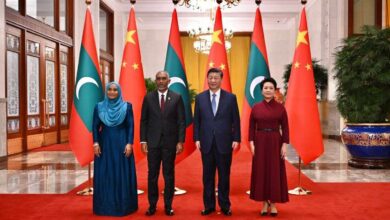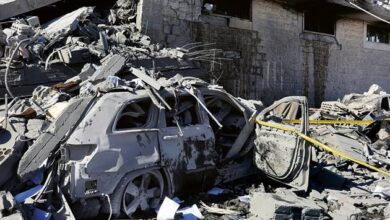Ten Years of CPEC: China, Pakistan to Celebrate Despite Terror Threat
He Lifeng, vice premier of China, came in Islamabad on Sunday to commemorate the 10th anniversary of the massive economic initiative that serves as the foundation of Beijing’s Belt and Road Initiative.
The China-Pakistan Economic Corridor (CPEC), which was launched in 2013, has seen tens of billions of dollars invested in significant infrastructure, energy, and transportation projects.
However, the project has also been hampered by Pakistan’s financial difficulties and terrorist assaults on Chinese targets.
According to Azeem Khalid, associate professor of international relations at COMSATS University Islamabad, the outcomes of the CPEC after ten years have been “mixed.”
“China has only made very little progress toward its main objective of establishing a connection with the Arabian Sea. Pakistan, on the other hand, has made significant strides in meeting short-term goals.
One of Islamabad’s most dependable foreign allies in recent years has been Beijing, which has quickly offered financial aid to rescue its often in need neighbor.
Beijing extended a $2.4 billion loan to Pakistan earlier this week for another two years, providing the debt-ridden country with much-needed breathing room as it deals with a balance-of-payments problem.
China and its commercial banks reportedly owned nearly 30% of Pakistan’s total foreign debt, according to an IMF study from the previous year.
MORE POWERFUL THAN THE HIMALAYAS
Near the Siachen Glacier in the Karakoram Mountains, one of the highest ranges in the world, the two nations share a 596-kilometer (370-mile) border.
Politicians in Pakistan sometimes use the cliche “stronger than the Himalayas, deeper than the ocean, and sweeter than honey” to emphasize how tight and extensive their ties to China are.
However, a number of challenges in recent years, such as CPEC projects that have delayed or been reduced down, have strained relations.
The economic corridor offers China a convenient entry point to the Indian Ocean, but worker security has always been a source of worry.
At least 44 people were murdered and several more were injured on Sunday when a suicide bomber struck a political rally of a major Islamic party in northwest Pakistan.
Claims that the massive inflow of investment does not help locals have been made in relation to the CPEC corridor, which connects Pakistan’s vital port of Gwadar in Balochistan with China’s remote western Xinjiang province.
Numerous assaults on CPEC facilities have been blamed on Baloch separatists, and hundreds of Pakistani security forces are on duty to protect Chinese interests.
Five people were murdered in an assault in April 2021 at a posh hotel in Quetta that was hosting the Chinese envoy, according to Pakistan’s Taliban.
Twelve individuals were murdered by a bomb on a bus taking personnel to the Dasu dam construction months later, nine of them Chinese laborers.
Beijing asserted that it was a bomb assault while Beijing attributed the explosion to a “gas leak” in Islamabad.
According to Khalid, the main issue preventing China from achieving its aims is security.
This is the main reason why CPEC hasn’t yet operated to its fullest capacity.
Flags of both nations and banners commemorating the event have been flown around Pakistan’s capital city in preparation for the visit.
A two-day public holiday has been announced for Islamabad to keep people off the streets, and security is on high alert.
In order to strike a balance between its strategic objectives and regional dynamics, Pakistan skillfully handles its ties with China and the United States.
With China, India’s longtime foe, there are increasingly frequent incidents of violence along their shared border.







